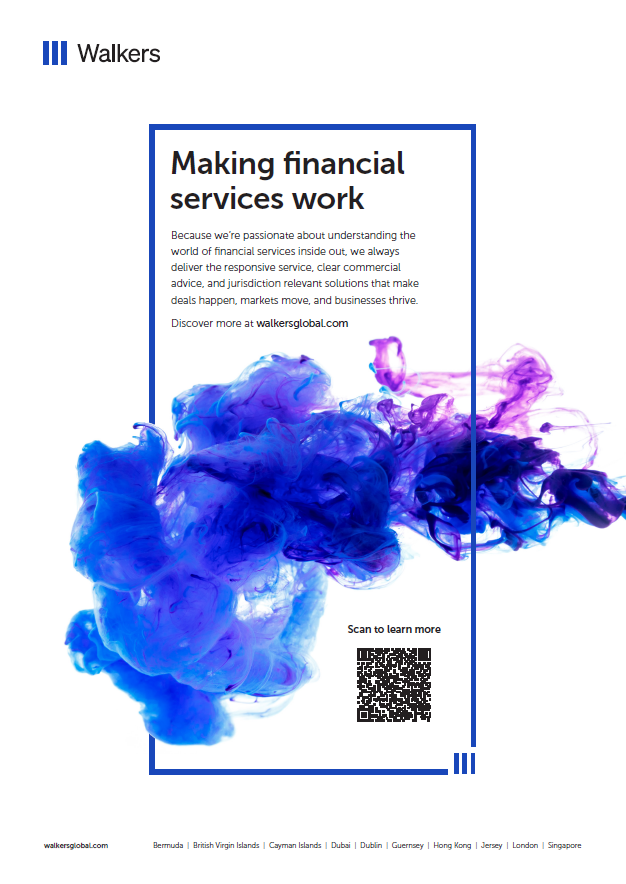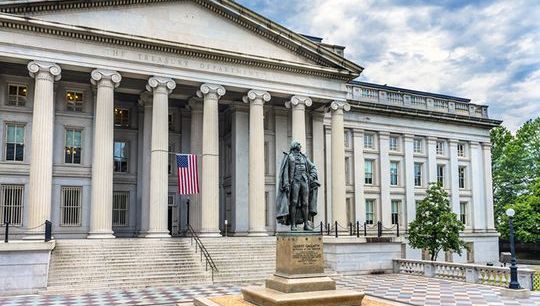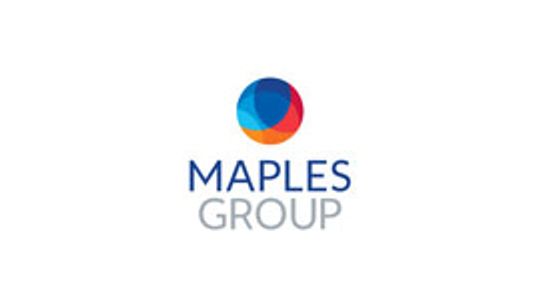Changes to beneficial ownership reporting: What funds and managers need to know
By Lucy Frew; Tatziana Paraguacuto; Nick Reid, Walkers
Published: 17 June 2024
What is the beneficial ownership regime?
To comply with international standards and commitments to combat money laundering, tax evasion and terrorist financing, the Cayman Islands implemented a beneficial ownership reporting regime (BORR) in 2017 which required each in-scope entity to instruct its corporate service provider (CSP) to establish and maintain a register of beneficial ownership information and file it with the Registrar of Companies (the Registrar). The Registrar maintains a search platform that enables specified persons to access information on beneficial ownership registers.
Background
The Cayman Islands has grown to around 30,000 regulated open-ended and closed-ended alternative investment funds. The Cayman Islands and the US each have between 30% and 40% of the world’s alternative investment funds, with the next largest domicile having less than 10%. The Cayman Islands’ appeal includes a legislative and regulatory framework designed for investment funds, continuously evolving to meet global standards. This framework focusses on financial crime prevention, corporate governance and international transparency but is highly flexible in terms of the operational requirements of funds, with no restrictions on investment strategies, short-selling or leverage, and no need for investment funds to have local bank accounts or local directors, managers, administrators, custodians, or other fund service providers – although hedge funds typically appoint local independent directors.
The OECD’s Financial Action Task Force (FATF) and the European Union have meticulously reviewed the Cayman Islands’ financial crime prevention framework and confirmed it meets global standards for transparency, anti-money laundering, and tax good governance on par with, or better than, most major economies. Over 170 countries have been assessed by the FATF and its network of regional bodies for compliance with the FATF Recommendations. Of these, the Cayman Islands is one of only a handful assessed by the FATF as compliant with all 40 of its Recommendations, a level of compliance which no G20 members or key EU member states meet. The Cayman Islands is committed to international transparency and is now updating its BORR.
What is changing?
Following industry consultation, the Beneficial Ownership Transparency Act, 2023 (the BOTA) was gazetted on 15 December 2023, to update the BORR in line with evolving international standards. The BOTA expands the scope of the BORR, meaning that many entities which previously had few or no obligations under this regime will have to take steps to comply.
Expansion of scope: Cayman Islands companies, limited liability companies, limited liability partnerships, foundation companies and, for the first time, exempted limited partnerships and limited partnerships (together Legal Persons) will be in scope of the BOTA. Trusts and registered foreign companies remain out of scope. Several exemptions available under the current BORR are to be removed.
Streamlining of legislation: Currently the BORR is set out across numerous pieces of primary legislation and accompanying regulations, which can make it hard to navigate. The BOTA consolidates the provisions of the Cayman Islands’ beneficial ownership regime in one single act.
Alignment of definition of “beneficial owner”: The BOTA aligns the definition of “beneficial owner” with the Cayman Islands Anti-Money Laundering Regulations (the AML Regulations), save that the relevant percentage for determining “control” under the BORR remains at 25% or more (not 10% or more, which is the threshold under the AML Regulations).
Data requirements: The BOTA requires marginally more information (as compared to currently) on registrable beneficial owners (RBOs) to be provided, particularly the nature of ownership or control held and, for individuals, their nationality. Currently a RBO’s name, address and (in the case of an individual) date of birth and details from the individual’s unexpired and valid government-issued document or (in the case of an entity) legal form and registration number need to be provided, along with the date of becoming or ceasing to be a RBO.
What action do entities need to take?
Many Legal Persons that were previously out of scope or exempt (such as local general partners, carry vehicles, debt issuance vehicles, special purpose vehicles, blockers, trading subsidiaries, entities registered under the Securities Investment Business Act and others) will now need to identify their RBOs and provide details to their CSP.
However, Legal Persons which are registered with the Cayman Islands Monetary Authority (CIMA) as mutual funds or private funds will not need to maintain a beneficial ownership register. Instead, they need only provide their CSP with details of an entity (Contact Person) which is able to provide details of the fund’s RBOs if ever requested. Legal Persons licensed by CIMA or listed on the Cayman Islands Stock Exchange (the CSX) or an approved stock exchange (or subsidiaries of such listed entities) also need not maintain beneficial ownership registers. Instead, they need only provide their CSP with details of their licensed or listed status.” CIMA registered investment funds, licensees and listed entities may opt in to establishing maintaining a beneficial ownership register if they wish.
A brief summary of initial actions is below.
| Type of entity | Initial action required |
|---|---|
| Trust | Out of scope - no action needed |
| Registered foreign company or other non-Cayman entity | Out of scope - no action needed |
| CIMA registered mutual fund or private fund | Legal Person must provide its CSP with details of a Contact Person (or opt in to having a register) |
| CIMA licensed Legal Person | Legal Person must provide details of its licence to its CSP (or opt in to having a register) |
| Legal Person listed on the CSX or an approved stock exchange | Legal Person must provide details of its listing to its CSP (or opt in to having a register) |
| Legal Person owned 75% or more by an entity listed on the CSX or an approved stock exchange | Legal Person must provide details of its parent’s listing to its CSP (or opt in to having a register) |
| Legal Person being wound up | Legal Person’s liquidator or CSP must provide details of the liquidator and the Legal Person’s RBOs at the time of the liquidator’s appointment to the Registrar |
| Legal Person not falling under any of the above which already reports its RBOs | Legal Person must identify its RBOs under the new definition and provide its RBOs’ details to its CSP |
| Legal Person not falling under any of the above | Legal Person must identify its RBOs and provide its RBOs’ details to its CSP |
What type of entity can a CIMA registered mutual fund or private fund appoint as Contact Person?
Only an entity licensed or registered with CIMA for providing beneficial ownership information (typically a CSP) or a fund administrator licensed under the Mutual Funds Act is eligible to be appointed as Contact Person.
What are RBOs?
A Legal Person which is neither a CIMA registered investment fund nor licenced or listed or the subsidiary of a listed entity will need to identify and provide details of its RBOs to its CSP, so the CSP can establish and maintain the Legal Person’s beneficial ownership register. RBOs include individual “beneficial owners” and “reportable legal entities” as defined in the BOTA. However, entities within fund structures are frequently institutionally and / or widely owned, meaning there may be no individual beneficial owner who ultimately owns or controls, directly or indirectly, 25% or more of the shares, voting rights or partnership interests in the Legal Person. In this case, an individual beneficial owner may be an individual who otherwise exercises ultimate effective control over the management of the Legal Person or who exercises control of the Legal Person through other means. A trustee may be deemed an individual beneficial owner in certain circumstances. There is a carve out for individuals operating solely in the capacity of lawyer, accountant, financial advisor or of liquidator, receiver or restructuring officer exercising a statutory function. If there is no such individual, a senior managing official, for example a director or chief executive officer of the Legal Person, will need to be identified. Reportable legal entities are, essentially, Cayman Islands entities which would be individual beneficial owners of a Legal Person if they were individuals.
Are Legal Entities required to implement any special reporting software?
No. Legal Entities can provide information to their CSP in whatever form is required by their CSP, which may include an online portal or via legal counsel. As the BORR has been in place since 2017, CSPs are familiar with their obligations.
Are there ongoing obligations?
There are ongoing obligations on Legal Persons, including but not only to ensure the information reported to their CSP is kept up to date. As under the existing BORR, the BOTA provides for restriction notices and penalties for non-compliance.
What is the timing?
The BOTA is expected to come into force in the near future, along with regulations and guidance, subject to a grace period meaning no enforcement action will be taken until 1 January 2025.
Next steps
Funds and managers should monitor further developments and be ready to take the necessary steps to comply.
This article does not cover every aspect of this topic and is not designed to provide legal advice. Further information and assistance is available on request, including advisories, decision trees and FAQs.










